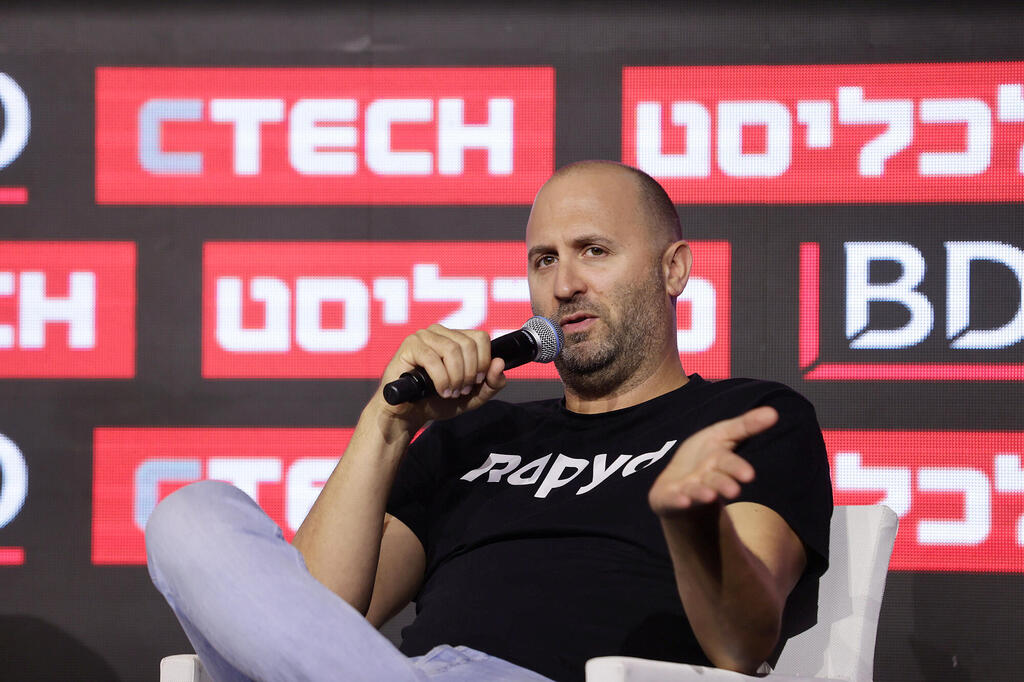
Rapyd CEO: "I estimate that this year we will grow by 65-70%"
Arik Shtilman, CEO of the digital payments unicorn, announced Rapyd’s entry to the Israeli market at Calcalist’s Financial Innovation conference in Tel Aviv
"One of the biggest barriers in the payments world is the issue of regulation," Rapyd Co-founder and CEO Arik Shtilman told the crowd at Calcalist’s Financial Innovation conference in Tel Aviv. "A lot of money needs to be invested to obtain a regulatory license to start operating in a country. Any startup that wants to operate in another country must invest money in lawyers, approvals, and licenses.”
Shtilman noted that historically Israeli companies have opted to register in foreign markets including in Europe, until now. “Today, I congratulate Israeli regulators for their recent decision to allow companies with foreign licenses to operate in Israel as well. Thanks to this, Rapyd has started operations in Israel.
"The Israeli market is dominated by Max, Isracard, and other entities that have been providing services to businesses for 40-50 years. I'm not referring to the world of card issuance, but when it comes to online or installment payments, that's where we come in. In other words, it primarily applies to businesses. Our goal is to capture 10% of the market within three years and bring innovation because the Israeli payment market has been stagnant for years, and it's time for a change.
"We constantly receive inquiries from Israeli businesses and reject them because we don't have the ability to support them. However, we now intend to make the necessary changes to enter the Israeli market, and we already have quite significant activity here. Once we don't need to invest all our resources in licenses and regulatory approvals, we can operate here just like in any other country. From an operational perspective, it's no different from the rest of the world, but the change we can bring to the market is significant."
So should your competitors be worried?
"Look, if you lose 10% of your market share in three years I think you should be worried."
Shtilman further discussed Rapyd’s growth over the past year. "In general, we have continued to grow at a fast pace - by 95%, and I estimate that this year we will grow by 65-70%," he said. "True, the growth rate has decreased, but relative to the market, our rate is still excellent. This year was a little more challenging because the focus is to work more with clients that provide you with profitability, but our company is on its way to becoming profitable in January 2024."
When it comes to the value of the company, Shtilman is optimistic. "Most of our investors maintained our valuation, while two lowered the value by 12%, but we are not bothered by that," he said. "In the end, value, certainly in a startup, is something you grow into. We see the value going forward and I don't think there is a problem with that."
What is the situation regarding the company's employees?
"Last November we made reductions due to acquisitions and resulting redundancies, but beyond that we have continued to hire. Perhaps not at the dizzying pace of the years 2021-2022, but the manpower has increased. You have to understand that what happened in 2020 during the pandemic was five years worth of acceleration of moving from offline to online payments. What people don't understand is that this period moved the market from 20% online payments to 25% over just a few months. The market has a lot of room to grow and I'm really not worried about our future market value.”
Don't you feel that there is an excess of companies that receive unreasonable valuations?
"There was a lot of hype and those who are unable to grow into their valuation are in serious trouble. But in the end it is very simple: if your model does not allow you to make money you have no right to exist, but online payment companies always have a way to make money, because in the end there is some margin in the deal. The question is how efficient are you. We, and companies like us, are in a very good position to continue growing."














